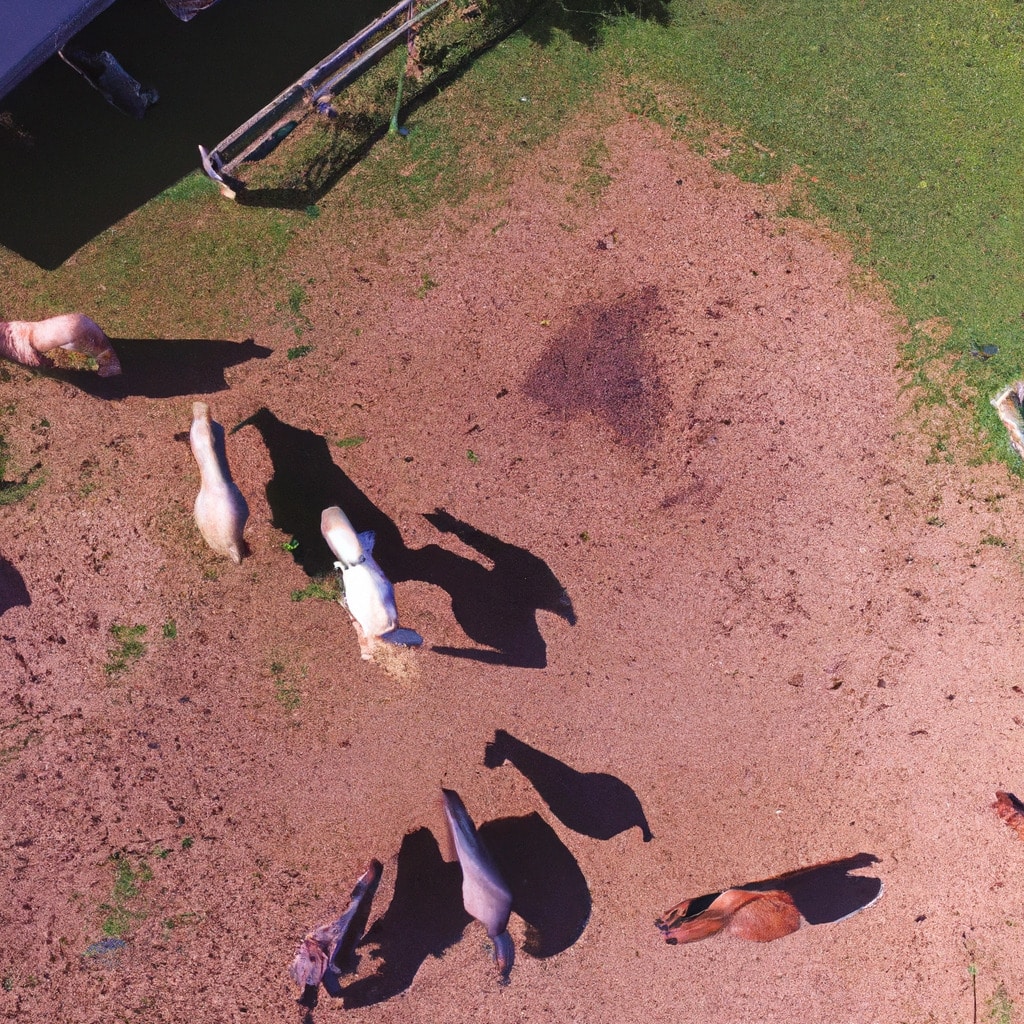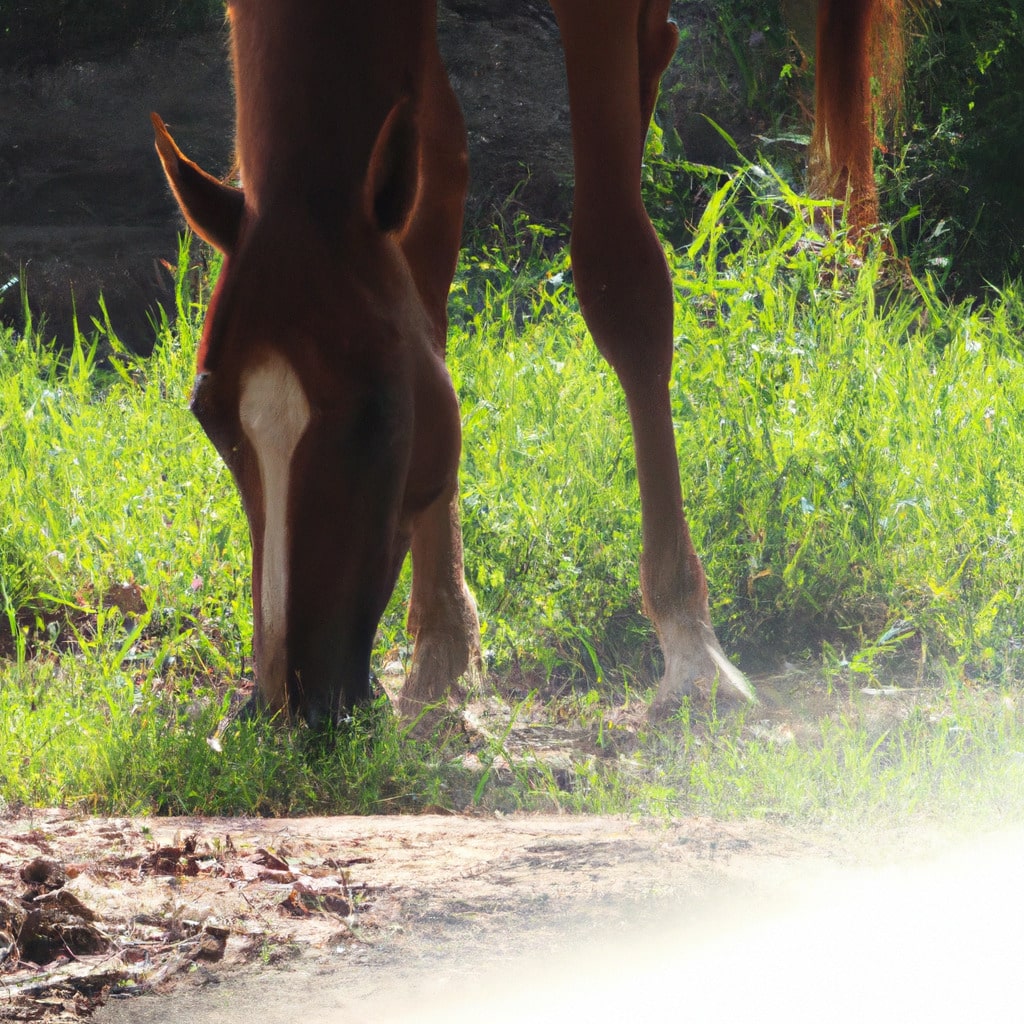Taking care of horses requires knowledge and dedication.
From providing proper nutrition to maintaining their overall well-being, horse care is a multifaceted task.
Whether you are a seasoned equestrian or a beginner, this comprehensive guide will provide you with essential tips to ensure the health and happiness of your equine companion.
In this guide, we will cover various aspects of horse care, including nutrition, grooming, exercise, and veterinary care.
By following these tips, you can establish a strong foundation for the well-being of your horse and build a deep bond with them.
So, let’s dive into the world of horse care and discover the key practices that will help you become a responsible and knowledgeable horse owner.
Proper Nutrition: The Foundation of Horse Care
Proper nutrition is the cornerstone of horse care. It plays a vital role in maintaining their overall health and well-being. A well-balanced diet ensures that your horse receives all the essential nutrients they need to thrive. Here are some key points to consider when it comes to feeding your horse:
1. Quality Forage: The majority of a horse’s diet should consist of high-quality forage, such as hay or pasture. This provides them with essential fiber, which aids in digestion and helps prevent digestive issues like colic.
2. Concentrates: In addition to forage, horses may require concentrates like grains or pellets to meet their nutritional needs. However, it’s important to consult with a veterinarian or equine nutritionist to determine the appropriate type and amount of concentrates for your horse, as it varies based on their age, weight, and activity level.
3. Water: Access to clean, fresh water is crucial for horses. They should have constant access to water, and it should be changed regularly to ensure its cleanliness. Dehydration can lead to serious health issues, so make sure your horse always has access to water.
4. Feeding Schedule: Establish a consistent feeding schedule for your horse. Horses thrive on routine, so try to feed them at the same times each day. This helps maintain their digestive health and prevents unnecessary stress.
5. Monitor Body Condition: Regularly assess your horse’s body condition to ensure they are maintaining a healthy weight. Adjust their diet accordingly if they are gaining or losing weight. Consult with a veterinarian for guidance on body condition scoring and appropriate dietary adjustments.
By providing your horse with a well-balanced diet and following these feeding guidelines, you can promote their overall health and prevent common nutritional issues. Remember, each horse is unique, so it’s important to tailor their diet to their specific needs.

Grooming: Keeping Your Horse Clean and Healthy
Regular grooming is an essential aspect of horse care. It not only helps keep your horse looking their best but also promotes their overall health and well-being. Here are some key grooming practices to incorporate into your routine:
1. Brushing: Brush your horse’s coat regularly to remove dirt, debris, and loose hair. This not only keeps them clean but also stimulates blood circulation and distributes natural oils, promoting a healthy coat.
2. Mane and Tail Care: Keep your horse’s mane and tail free from tangles and debris by gently combing them. Regularly trim the ends to prevent breakage and maintain a neat appearance.
3. Hoof Care: Regularly clean your horse’s hooves and check for any signs of damage or infection. Schedule regular visits from a farrier to trim and balance their hooves. Proper hoof care is crucial for their overall soundness.
4. Bathing: Occasionally, you may need to give your horse a bath to remove stubborn dirt or stains. Use a gentle equine shampoo and warm water. Rinse thoroughly to prevent any residue that may cause skin irritation.
5. Dental Care: Regular dental check-ups are essential for your horse’s oral health. Dental issues can affect their ability to chew and digest food properly. Consult with a veterinarian or equine dentist for routine dental care.
6. Fly Control: Implement fly control measures to protect your horse from annoying and potentially harmful flies. This can include the use of fly repellents, fly masks, and maintaining clean surroundings to minimize breeding grounds for flies.
By incorporating these grooming practices into your horse care routine, you can keep your horse clean, comfortable, and healthy. Regular grooming sessions also provide an opportunity to bond with your horse and monitor their overall condition.
Exercise and Enrichment: Keeping Your Horse Fit and Happy
Regular exercise and mental stimulation are crucial for the overall well-being of your horse. In addition to providing physical benefits, exercise helps prevent boredom and behavioral issues. Here are some tips to keep your horse fit and happy:
1. Turnout Time: Allow your horse ample turnout time in a safe and spacious pasture. This allows them to move freely, socialize with other horses, and engage in natural behaviors like grazing and rolling.
2. Riding and Training: Regularly ride and train your horse to keep them physically and mentally stimulated. This can include various activities such as trail riding, dressage, jumping, or even ground exercises like lunging or liberty work.
3. Variety in Routine: Introduce variety into your horse’s exercise routine to prevent monotony. Incorporate different exercises, terrains, and obstacles to keep them engaged and challenged.
4. Mental Enrichment: Provide mental stimulation for your horse through activities like puzzle feeders, treat balls, or engaging them in groundwork exercises that require focus and problem-solving.
5. Regular Veterinary Check-ups: Schedule regular veterinary check-ups to ensure your horse is in good health and to address any underlying issues that may affect their performance or well-being.
6. Warm-up and Cool-down: Always warm up your horse before exercise and allow for a proper cool-down period afterward. This helps prevent injuries and promotes muscle recovery.
7. Listen to Your Horse: Pay attention to your horse’s cues and body language during exercise. If they show signs of fatigue, discomfort, or resistance, adjust the intensity or duration of the activity accordingly.
By providing regular exercise and mental enrichment, you can keep your horse physically fit, mentally stimulated, and content. Remember to tailor the exercise routine to your horse’s individual needs and abilities.
In conclusion, proper horse care is essential for the health, happiness, and well-being of your equine companion. By following the tips and guidelines provided in this comprehensive guide, you can establish a strong foundation for their care.
Remember, horse care is a lifelong commitment that requires continuous learning and adaptation. Stay informed about the latest research and advancements in equine care, and consult with professionals whenever necessary.
By providing your horse with a well-balanced diet, regular grooming, exercise, and veterinary care, you can ensure their overall health and longevity. Additionally, building a strong bond with your horse through consistent care and attention will enhance your relationship and create a fulfilling partnership.
So, whether you are a seasoned equestrian or a beginner, take the time to educate yourself about horse care practices and implement them diligently. Your horse will thank you with their trust, loyalty, and companionship.
Are you ready to embark on this incredible journey of horse care?


